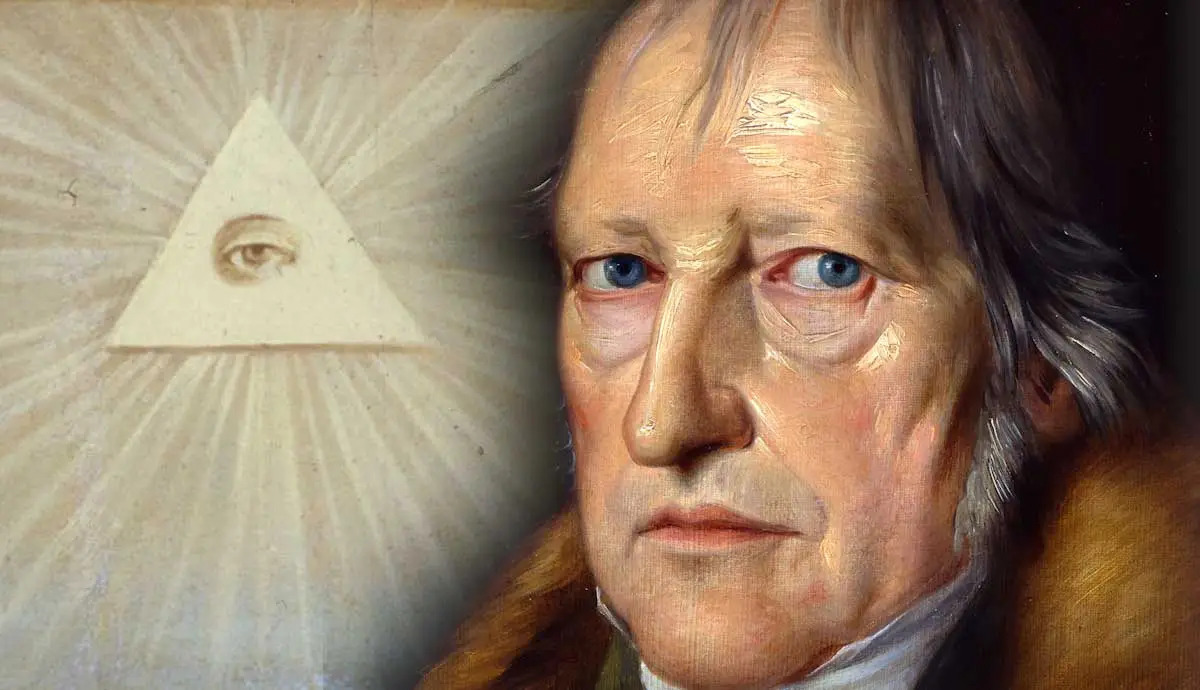
G.W.F. Hegel is a highly influential philosopher whose ideas continue to shape modern philosophy and social sciences. Known for his complex and intricate philosophical system, Hegel’s work has challenged traditional ways of thinking and sparked numerous debates and interpretations.
In this article, we will explore 11 intriguing facts about G.W.F. Hegel that shed light on his life, philosophy, and contributions to the world of thought. From his early life to his major works and enduring impact, we will delve into the fascinating aspects of Hegel’s intellectual journey.
Prepare to be captivated by the brilliance of Hegel’s mind as we uncover some lesser-known aspects of his life and delve into the depths of his philosophical concepts. Whether you’re a seasoned Hegelian scholar or simply curious about one of history’s greatest thinkers, this article will provide you with a fresh perspective on G.W.F. Hegel.
Key Takeaways:
- G.W.F. Hegel’s dialectical method revolutionized philosophy by showing how conflicting ideas can lead to a deeper truth through synthesis.
- Hegel’s philosophy influenced Marx, existentialism, and art, shaping diverse areas of thought and leaving a lasting impact on intellectual discourse.
G.W.F. Hegel developed the concept of dialectics.
Hegel’s dialectical method revolutionized the study of philosophy. It involves the idea that conflicting ideas (thesis and antithesis) can be resolved through a synthesis, leading to a deeper understanding of truth.
Hegel’s “The Phenomenology of Spirit” is a groundbreaking work.
This influential philosophical treatise explores the journey of self-consciousness and the development of knowledge. It laid the foundation for Hegel’s philosophical system.
Hegel’s philosophy had a significant impact on Karl Marx.
Marx adopted Hegel’s dialectical method and transformed it into his own theory of historical materialism, which became the basis for Marxism.
Hegel believed in the importance of historical progression.
According to Hegel, history unfolds through a series of conflicts and resolutions, leading to the development of human freedom and self-awareness.
He was critical of individualism.
Hegel argued that true freedom and self-realization could only be achieved within a collective society, rather than through isolated individual pursuits.
Hegel’s philosophy greatly influenced existentialism.
Existentialist thinkers, such as Jean-Paul Sartre and Martin Heidegger, drew inspiration from Hegel’s ideas on the subjective experience of existence and the search for meaning.
He held the belief that art holds intrinsic value.
Hegel considered art as a form of expression that captures the spirit of an age and contributes to the cultural development of society.
Hegel’s lectures on aesthetics are highly regarded.
His lectures on aesthetics explored the nature of beauty, artistic creativity, and the role of art in shaping human experience. They are regarded as a cornerstone of aesthetic theory.
He proposed the concept of the “world-spirit.”
Hegel conceptualized an all-encompassing spirit that guides historical progress and shapes the collective consciousness of humanity.
Hegel’s philosophy has been subject to diverse interpretations.
Hegelianism has been interpreted in various ways throughout history, leading to different philosophical movements such as neo-Hegelianism and post-Hegelianism.
His philosophical system provides a comprehensive framework.
Hegel’s philosophy encompasses various areas of thought, including logic, metaphysics, ethics, politics, and aesthetics, making it a comprehensive and encompassing system.
These 11 intriguing facts about G.W.F. Hegel offer a glimpse into his profound influence and enduring legacy in the field of philosophy. From his groundbreaking concepts of dialectics to his impact on subsequent philosophical movements, Hegel’s ideas continue to shape intellectual discourse to this day.
Conclusion
These 11 intriguing facts about G.W.F. Hegel shed light on the life, philosophy, and influence of one of the most significant figures in the history of Western philosophy. From his groundbreaking dialectical method to his impact on political thought, Hegel’s ideas continue to shape our understanding of the world.
His works, such as “Phenomenology of Spirit” and “Science of Logic,” remain essential texts for philosophers, historians, and social scientists. Hegel’s philosophical concepts, such as the idea of thesis, antithesis, and synthesis, continue to be debated and explored to this day.
Understanding Hegel’s thought is crucial for anyone interested in philosophy, history, or political theory. His influence extends far beyond academia, as his ideas have influenced social movements, political ideologies, and cultural movements. G.W.F. Hegel’s contributions to philosophy and intellectual history are undeniable, making him a figure worth exploring and studying.
FAQs
1. Who was G.W.F. Hegel?
G.W.F. Hegel, born Georg Wilhelm Friedrich Hegel, was a German philosopher, one of the key figures in Western philosophy during the 19th century. He developed a comprehensive philosophical system and is known for his dialectical method.
2. What is Hegel’s dialectical method?
Hegel’s dialectical method is a philosophical concept that involves a triadic process of thesis, antithesis, and synthesis. It is a way of understanding how contradictions and conflicts can lead to a higher level of truth or understanding.
3. What are some of Hegel’s major works?
Some of Hegel’s major works include “Phenomenology of Spirit,” “Science of Logic,” and “Elements of the Philosophy of Right.” These works explore various aspects of philosophy, history, and political theory.
4. How has Hegel’s philosophy influenced modern thought?
Hegel’s philosophy has had a profound impact on various fields, including philosophy, political theory, sociology, and literary theory. His ideas, such as the dialectical process and the concept of historical development, continue to shape our understanding of society and culture.
5. What is the significance of Hegel’s ideas?
Hegel’s ideas have had a lasting impact on how we think about history, consciousness, and social progress. His dialectical method and emphasis on the role of contradiction and change have influenced many subsequent philosophers and thinkers.
6. How does Hegel’s philosophy relate to politics?
Hegel’s political philosophy explores the relationship between individual freedom and the state. He argued for a balance between individual rights and the collective will, laying the groundwork for modern political ideologies such as liberalism, conservatism, and socialism.
7. Was Hegel a controversial figure?
Yes, Hegel’s ideas were highly controversial during his time and continue to be debated today. His complex writing style and the abstract nature of his philosophy make his work challenging to interpret and understand fully.
8. How did Hegel’s philosophy impact the world?
Hegel’s philosophy has permeated various aspects of society, including politics, culture, and intellectual thought. His ideas have influenced social movements, political ideologies, and artistic movements, leaving a lasting imprint on the world.
9. Why should we study Hegel?
Studying Hegel is essential for anyone interested in philosophy, intellectual history, or political theory. His ideas continue to have relevance and offer valuable insights into understanding the complexities of society and human thought.
10. What is Hegelianism?
Hegelianism refers to the philosophical system developed by Hegel and the thinkers who were influenced by his ideas. It involves an emphasis on dialectics, historical development, and the reconciliation of contradictions.
11. How can I start learning about Hegel?
A good starting point for learning about Hegel is to delve into his major works, such as “Phenomenology of Spirit” and “Science of Logic.” Additionally, there are many introductory books and online resources available that provide accessible explanations and interpretations of Hegel’s philosophy.
If you're fascinated by Hegel's philosophical ideas, why not explore more captivating facts about his life and work in our article on Hegelianism? For a change of pace, dive into the intricacies of Belarusian, a language rich in dialectics. And if you're curious about other influential thinkers, don't miss our piece on Edmund Husserl, the father of phenomenology. Each article offers a unique perspective on these compelling subjects, guaranteed to pique your interest and expand your knowledge.
Was this page helpful?
Our commitment to delivering trustworthy and engaging content is at the heart of what we do. Each fact on our site is contributed by real users like you, bringing a wealth of diverse insights and information. To ensure the highest standards of accuracy and reliability, our dedicated editors meticulously review each submission. This process guarantees that the facts we share are not only fascinating but also credible. Trust in our commitment to quality and authenticity as you explore and learn with us.


